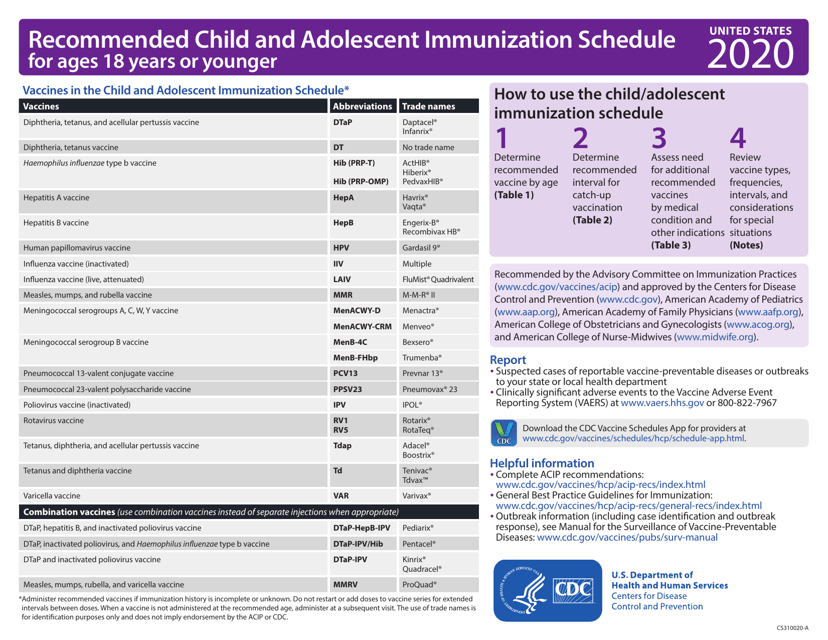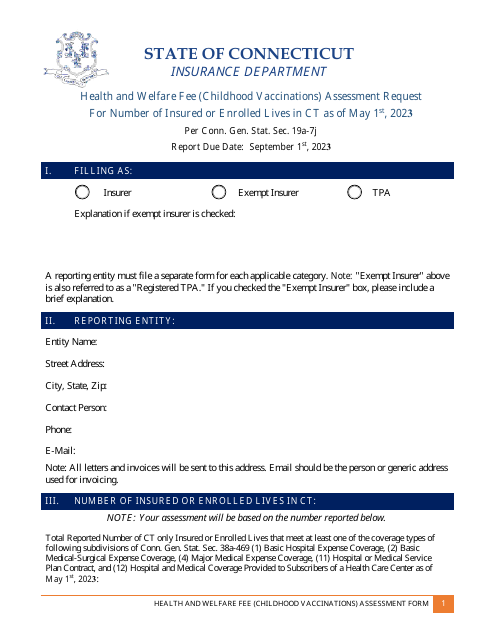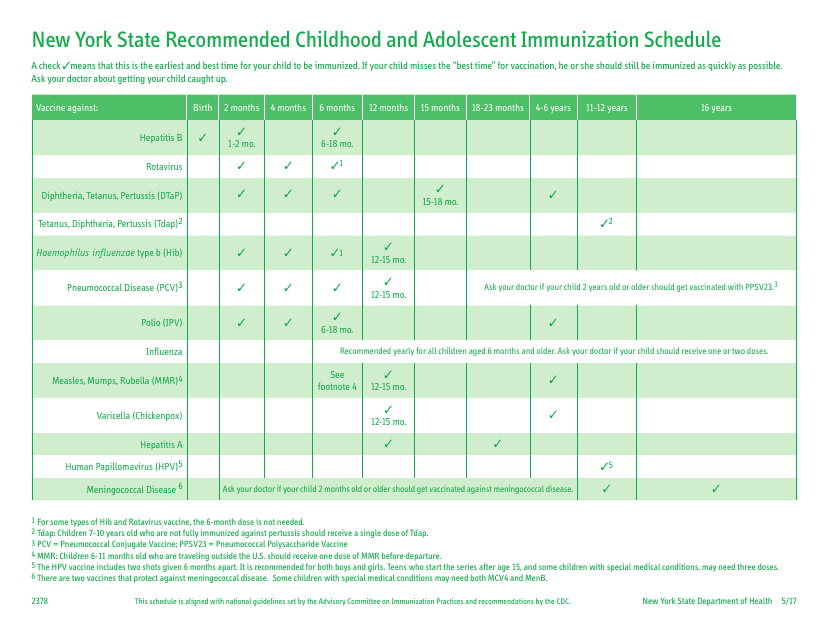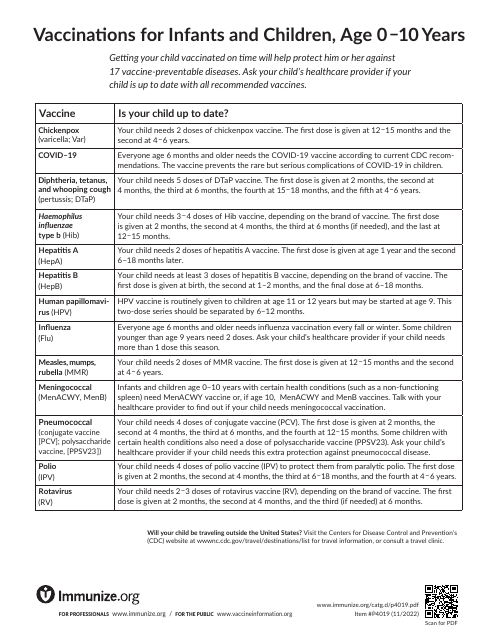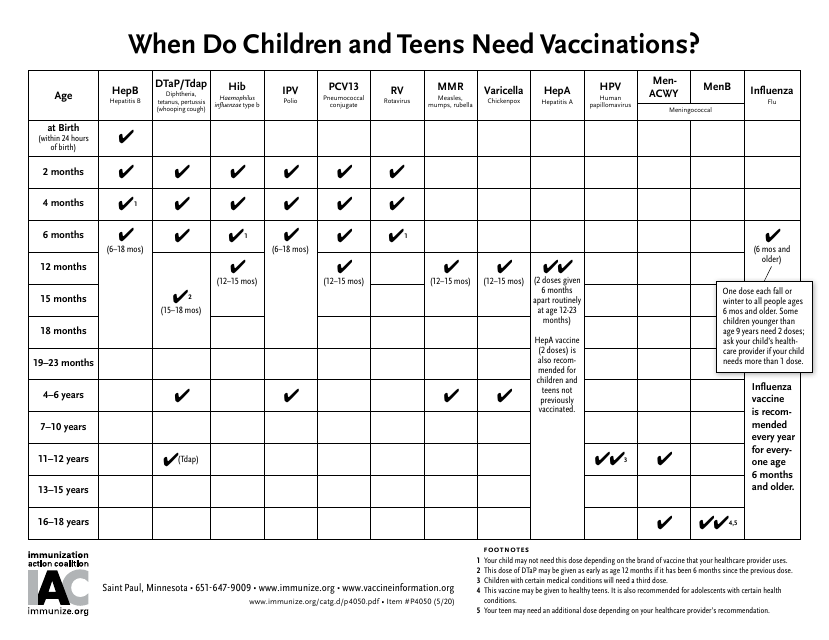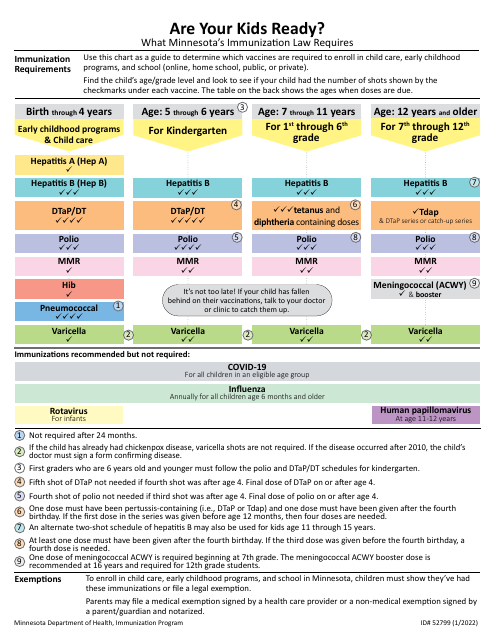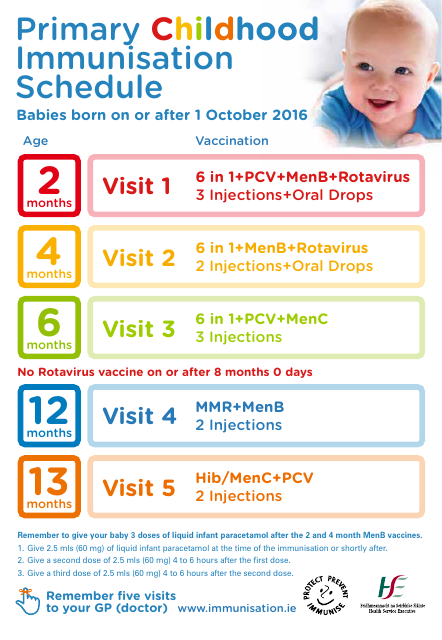Childhood Vaccines Templates
Childhood vaccines play a crucial role in protecting children from preventable diseases and ensuring their overall health and well-being. These vaccines, also known as childhood vaccinations, are recommended by health authorities to be administered to children at specific ages to provide immunity against a range of infectious diseases.
Childhood vaccines are an essential part of public health initiatives aimed at reducing the spread of diseases in communities and safeguarding the most vulnerable members of society. By vaccinating children, we can help prevent outbreaks of diseases that can have serious health consequences and even be life-threatening.
Each state and province may have its own recommended childhood and adolescent immunization schedules, such as the New York State Recommended Childhood and Adolescent Immunization Schedule or the Children Immunization Schedules in Minnesota. These schedules outline the vaccines that children should receive and the recommended age for administration.
With the Primary Childhood Immunisation Schedule, healthcare providers can ensure that children receive the necessary vaccines in a timely manner. This schedule takes into account the specific vaccines recommended for different age groups and provides a comprehensive guideline for healthcare professionals.
Ensuring that children are up-to-date with their vaccinations is a critical aspect of maintaining their health and preventing the spread of diseases. State-specific assessment requests, like the Health and Welfare Fee (Childhood Vaccinations) Assessment Request in Connecticut, help monitor vaccination rates and ensure that all children have access to the necessary vaccines.
By adhering to recommended childhood vaccines and following state-specific immunization schedules, we can protect our children and contribute to the overall health and well-being of our communities. Childhood vaccinations are an integral part of a robust public health system and are essential for keeping our children healthy and safe.
Documents:
8
This document provides the recommended schedule for child and adolescent immunizations, which includes vaccines for individuals who are 18 years old or younger. It ensures that children and teenagers receive the necessary vaccines to protect against various diseases.
This document provides the recommended schedule for childhood and adolescent immunizations in the state of New York. It outlines the specific vaccines that children and teenagers should receive at different ages to protect against various diseases.
This document provides the vaccination schedule for infants and children from ages 0 to 10 years. It outlines the recommended vaccines to protect children from various diseases at different stages of their early development. It is important for parents and caregivers to follow this schedule to ensure their child receives the necessary immunizations for optimal health and well-being.
This guide provides detailed information about the timeline and frequency of immunizations recommended for children and adolescents to protect them from various diseases. It is an indispensable resource for parents, caregivers, and medical professionals.
This document provides detailed information about the recommended vaccination schedules for children in Minnesota, useful for parents and healthcare providers to ensure timely immunization.
This document outlines the recommended immunization schedule for children in the United States. It provides information on the vaccines that children should receive and when they should receive them to protect against various diseases.

